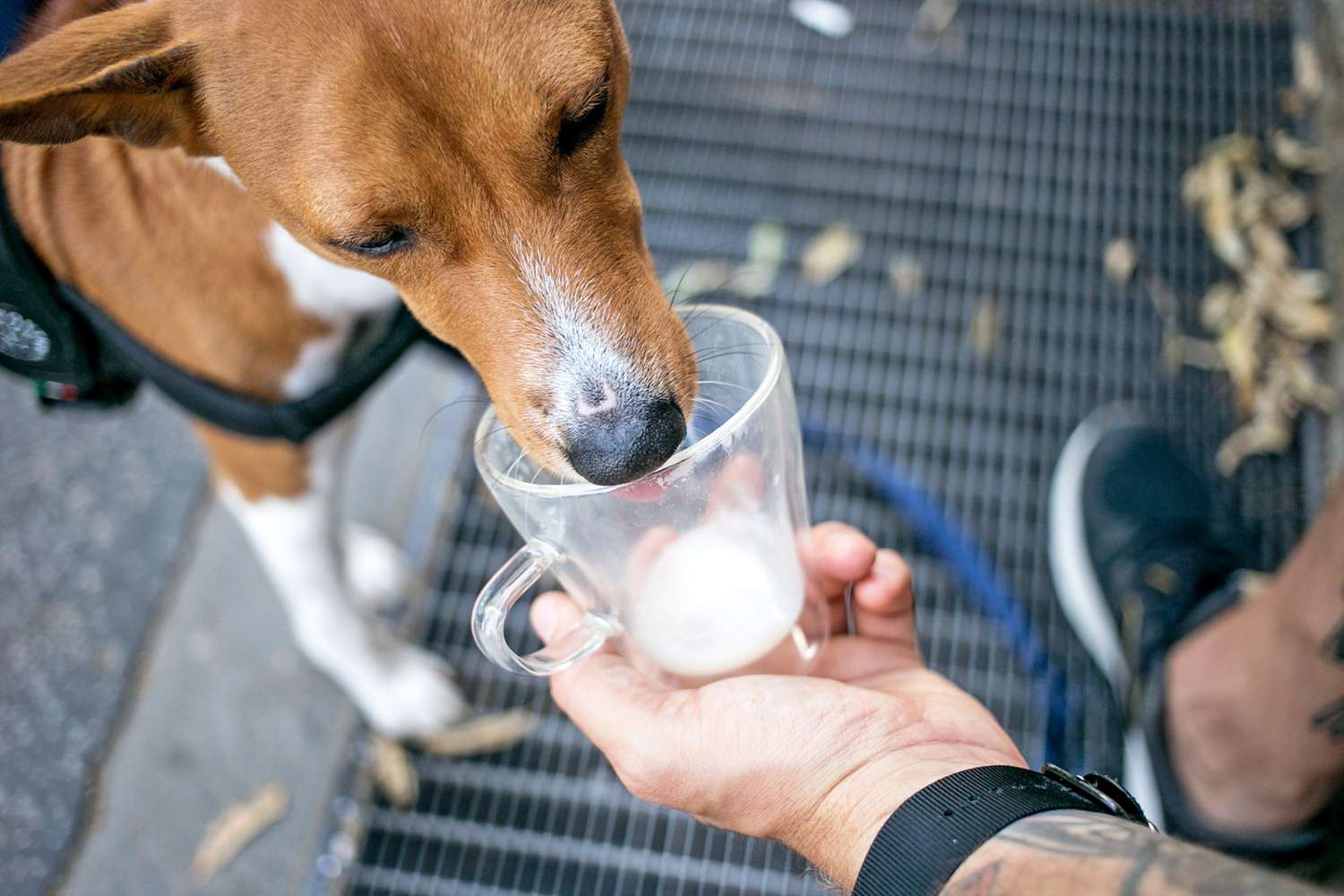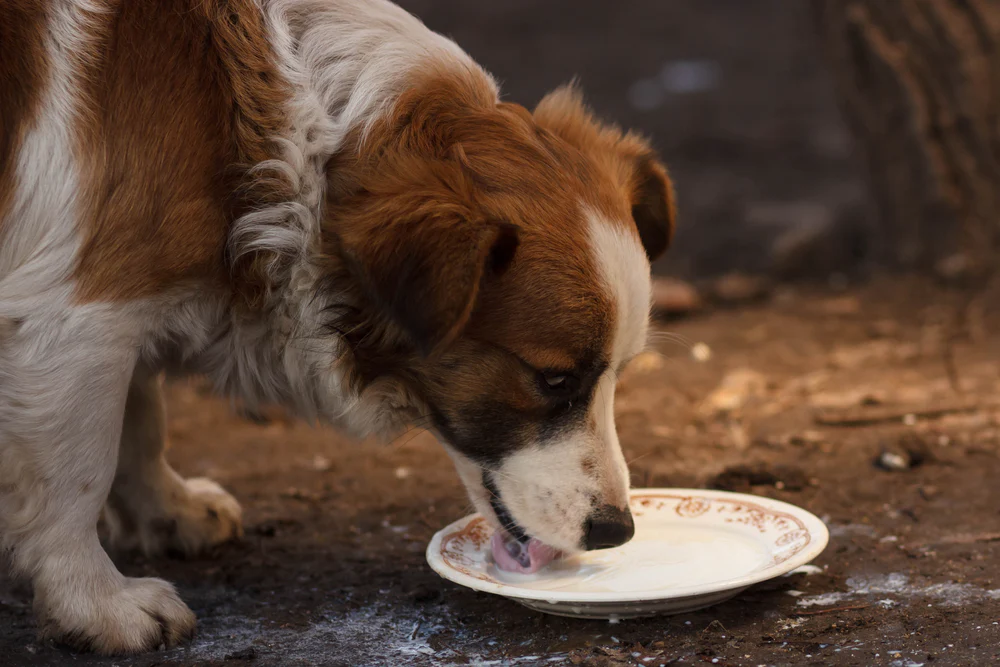Are you wondering if milk is good for your dog As a responsible dog owner, it’s important to understand the potential effects of milk on your dog’s health. While milk may seem like a harmless treat, there are a few factors to consider before sharing this beverage with your dog. In this guide, we’ll discuss the pros and cons of giving milk to dogs, explore the different types of milk, and provide guidelines for incorporating dairy into your dog’s diet.

Is Milk Good for Dogs?
While milk may seem like a natural treat for dogs, it’s actually not the best choice for their health. Here’s why:
Lactose Intolerance: Many dogs, especially adults, lack the enzyme needed to digest lactose, the sugar found in milk. This can lead to digestive upset, including gas, bloating, diarrhea, and vomiting.
Nutritional Needs: Dogs have different nutritional needs than humans, and milk doesn’t provide the essential nutrients they require. Their diet should primarily consist of a high-quality, balanced dog food formulated for their specific age and activity level.
Unhealthy Fat and Calories: Cow’s milk, especially whole milk, is high in fat and calories, which can contribute to weight gain and obesity in dogs.
Alternatives: If you want to give your dog a special treat, there are better options than milk. Consider dog-specific treats, plain yogurt (in small amounts), or even fruits and vegetables like carrots or apples (cut into bite-sized pieces).
Exceptions:
- Puppies: For the first few weeks of life, puppies get all their necessary nutrients from their mother’s milk. However, if they are orphaned or need supplemental feeding, they should be given specialized puppy formula, not cow’s milk.
- Lactose-free Milk: Some lactose-free milk alternatives might be better tolerated by lactose-intolerant dogs, but it’s still important to be cautious and only offer them in small amounts as an occasional treat.
What kind of milk can dogs drink?
Here’s a breakdown of the different types of milk and their effects on dogs:

1. Cow’s Milk
Cow’s milk is the most common type of milk available in grocery stores. While it is generally safe for dogs to consume, it’s important to note that cow’s milk contains lactose and complex proteins that can be difficult for some dogs to digest. If your dog is lactose intolerant or has a sensitivity to dairy, cow’s milk may cause digestive upset.
2. Goat’s Milk
Goat’s milk is often considered a healthier alternative to cow’s milk for dogs. It has a higher protein content and lower lactose content, making it easier for some dogs to digest. However, it’s still important to monitor your dog for any signs of lactose intolerance or allergies. Goat’s milk is slightly higher in calories and fat compared to cow’s milk, so it’s essential to consider your dog’s overall calorie intake.
3. Mother’s Milk Supplements
Mother’s milk supplements, usually in powdered form, are designed to provide similar nutrients to a mother dog’s milk. These supplements are commonly used for puppies or dogs with specific nutritional needs. They often contain colostrum, a nutrient-rich substance that supports immune system development. However, once dogs are weaned, their lactase production decreases, which can make it more difficult for them to digest milk.
How much milk can dogs have?
Here’s what you need to know about how much milk is safe for your dog:

- Serving size: Dogs have different tolerance levels when it comes to milk. As a general guideline, it is recommended to stick to no more than 1/4 cup of milk per day for small to medium-sized dogs and up to 1/2 cup for larger dogs.
- Lactose intolerance: Dogs, like some humans, can be lactose intolerant. Lactose is a sugar found in milk that can be difficult for dogs to digest. If your dog experiences symptoms like diarrhea, gas, or stomach upset after consuming milk, it may be a sign of lactose intolerance. In such cases, it’s best to avoid giving your dog milk altogether or consider lactose-free milk alternatives.
- Consult your vet: Before introducing milk or any new food item into your dog’s diet, it’s always a good idea to consult with your veterinarian. They can provide personalized advice based on your dog’s specific needs, health conditions, and dietary requirements.
Conclusion
While milk can be a treat for your dog, it should not replace a well-balanced diet specifically formulated for their needs. Always prioritize your dog’s health and consult with your veterinarian for personalized advice.
Frequently Asked Questions
What kind of milk can puppies drink?
Puppies can drink both regular milk and lactose-free milk, but only in small amounts and as an occasional treat. Plant-based milk like soy milk, coconut milk, and almond milk can also be given to puppies in small amounts.
Can dogs drink milk mixed with water?
No, dogs should not drink milk. Cow’s milk can upset their stomach and cause long-term health problems, so it is not suitable for their diet.

Hey there, I’m Janet Brooks, a dog-loving student from California. I’m all about helping pups in need, especially those without homes. Me and my awesome friends work together to give shelter and love to stray dogs. Oh, and I also write blogs about dogs to share helpful info.